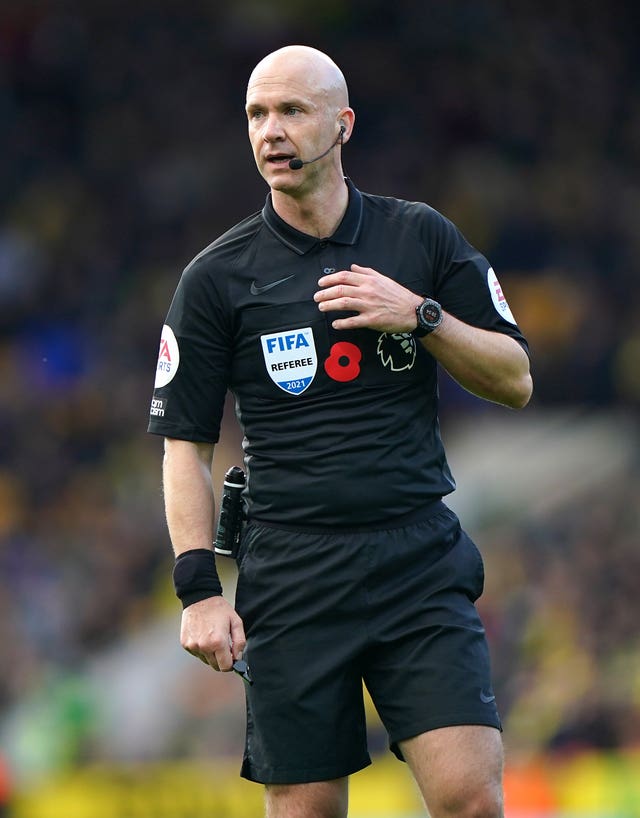
FEMALE referees have been selected to officiate at a men’s World Cup finals for the first time.
Stephanie Frappart of France, Salima Mukansanga from Rwanda and Yoshimi Yamashita from Japan have been included on FIFA’s official list of 36 referees for the tournament in Qatar later this year.
Three women are also on the list of 69 assistant referees – Neuza Back from Brazil, Karen Diaz Medina from Mexico and Kathryn Nesbitt from the United States.
36 referees69 assistant referees24 video match officials
Selected #WorldCup match officials represent the highest level of refereeing worldwide.
6 women’s match officials appointed for first time in FIFA World Cup history.
👉https://t.co/sw289IUDX9 pic.twitter.com/j5TFxePzdn
— FIFA Media (@fifamedia) May 19, 2022
“This concludes a long process that began several years ago with the deployment of female referees at FIFA men’s junior and senior tournaments,” the chairman of FIFA’s referees’ committee Pierluigi Collina said.
“In this way, we clearly emphasise that it is quality that counts for us and not gender. I would hope that in the future, the selection of elite women’s match officials for important men’s competitions will be perceived as something normal and no longer as sensational.
“They deserve to be at the FIFA World Cup because they constantly perform at a really high level, and that’s the important factor for us.”
Frappart has refereed in the men’s Champions League and the 2019 Super Cup match between Liverpool and Chelsea.
 Anthony Taylor, pictured, and Michael Oliver are the two English referees selected for the World Cup finals (Joe Giddens/PA)
Anthony Taylor, pictured, and Michael Oliver are the two English referees selected for the World Cup finals (Joe Giddens/PA)
English referees Michael Oliver and Anthony Taylor have also been selected.
The pair took charge of matches at Euro 2020, with Taylor receiving huge praise after his swift response to Denmark’s Christian Eriksen suffering a cardiac arrest in the group match against Finland.
Discussions are understood to still be ongoing over the use of semi-automated offside technology at the finals.
The technology was tested at the Club World Cup earlier this year and the Arab Cup last year.
FIFA has named 24 video assistant referees (VARs) for the finals, none of whom are British.


Why are you making commenting on The Herald only available to subscribers?
It should have been a safe space for informed debate, somewhere for readers to discuss issues around the biggest stories of the day, but all too often the below the line comments on most websites have become bogged down by off-topic discussions and abuse.
heraldscotland.com is tackling this problem by allowing only subscribers to comment.
We are doing this to improve the experience for our loyal readers and we believe it will reduce the ability of trolls and troublemakers, who occasionally find their way onto our site, to abuse our journalists and readers. We also hope it will help the comments section fulfil its promise as a part of Scotland's conversation with itself.
We are lucky at The Herald. We are read by an informed, educated readership who can add their knowledge and insights to our stories.
That is invaluable.
We are making the subscriber-only change to support our valued readers, who tell us they don't want the site cluttered up with irrelevant comments, untruths and abuse.
In the past, the journalist’s job was to collect and distribute information to the audience. Technology means that readers can shape a discussion. We look forward to hearing from you on heraldscotland.com
Comments & Moderation
Readers’ comments: You are personally liable for the content of any comments you upload to this website, so please act responsibly. We do not pre-moderate or monitor readers’ comments appearing on our websites, but we do post-moderate in response to complaints we receive or otherwise when a potential problem comes to our attention. You can make a complaint by using the ‘report this post’ link . We may then apply our discretion under the user terms to amend or delete comments.
Post moderation is undertaken full-time 9am-6pm on weekdays, and on a part-time basis outwith those hours.
Read the rules here